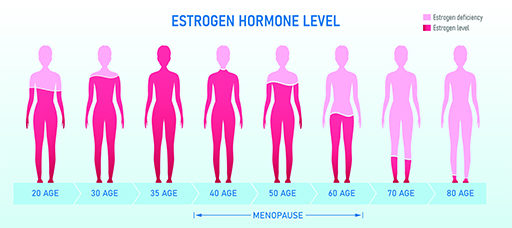2 When does the menopause happen?
Menopause will happen to everyone who has a menstrual cycle. And many people find exactly that – it just happens to them, often bringing about changes that they have possibly never thought about before, far less anticipated. For some, menopause is a gradual process that occurs as they end their fertile years. But for others, the transition happens almost overnight, where menopause is ‘induced’ or accelerated by the sudden reduction of hormones that occur as a result of surgery (e.g. hysterectomy), or medical interventions, such as some types of treatment for cancer (Hillard et al., 2017).
A ‘natural menopause’ occurs as a part of the expected transition of the body from being fertile and able to produce children to being no longer capable of becoming pregnant (Northrup, 2012). This occurs as the levels of hormones gradually change, with a substantial fall over time in the production of oestrogen. For some people, this process might last for perhaps 4–5 years, while for others, it can take up to 12–13 years (Newson, 2019; Northrup, 2012). The following figure shows how oestrogen levels fall across the lifespan.
You can see there is a significant decline in oestrogen between the ages of 50 and 60 where symptoms such as low mood, brain fog and increased anxiety accompany this reduction.

